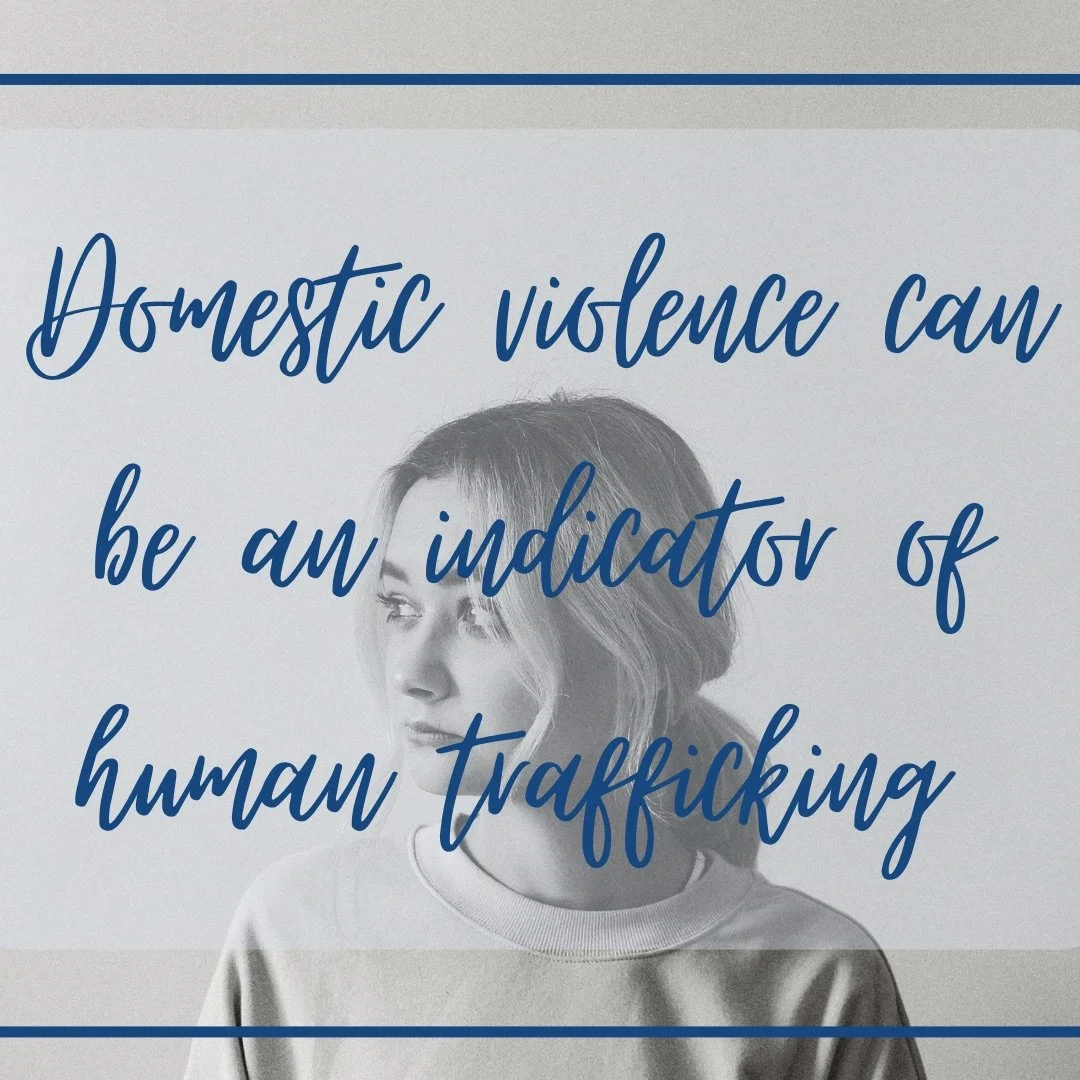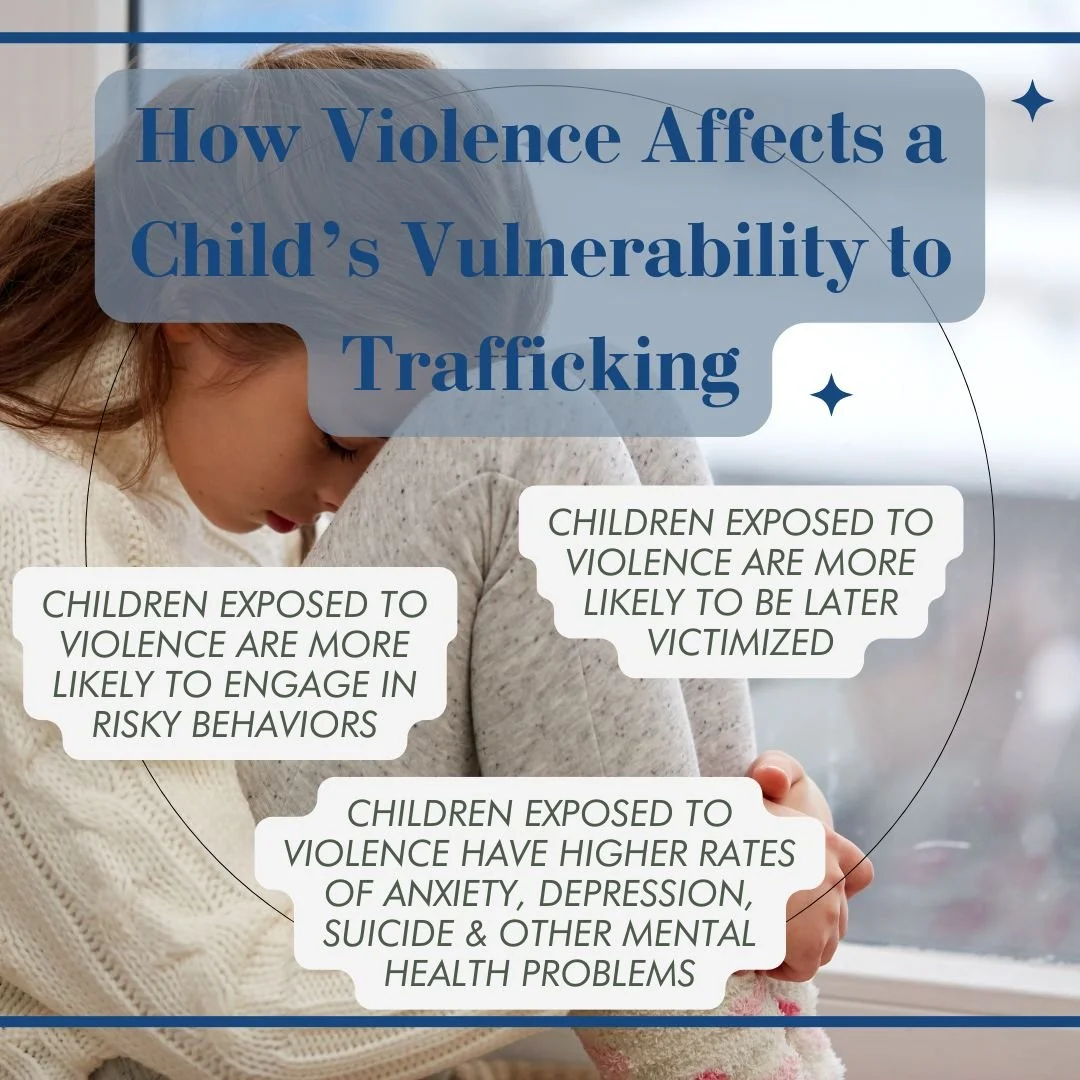Child Trafficking & Domestic Violence
Domestic violence is a pattern of abusive behavior in any relationship that is used by one partner in order to gain or maintain power and control over another. Types of domestic violence include:
Emotional - verbal intimidation, aggression, manipulation or humiliation.
Physical - physical harm that results in pain or injury that is non-accidental.
Sexual - non-consensual sexual coercion through force, fraud or guilt.
Financial - when one partner has control over the other partner’s access to money and resources.
Digital - when someone uses technology to bully, harass, stalk, or intimidate a partner.
Domestic violence is a factor that increases an individual’s vulnerability to human trafficking.
The National Domestic Violence Hotline reported that an average of 24 people a minute are victims of rape, physical violence or stalking in the United States. Knowing the signs of domestic violence is important for many reasons, including that it can be an indicator of human trafficking. Signs of domestic violence can include:
Physical unexplained injuries with inconsistent or confusing explanations
If someone is receiving constant calls, or texts to see where they are or what they are doing
If an individual is extremely apologetic or meek
Someone constantly being late or lacking control over their schedule
An excessive protection or privacy and someone’s personal life
If a person has restricted access to their finances or vehicles
A victim might deceive their partner using words like “possessive”, “jealous”, or “controlling”
Someone becoming more quiet and withdrawn and exhibiting constant alertness
Experiencing violence can have a detrimental impact on a child’s life and significantly increase their vulnerability to and risk factors associated with human trafficking.
Children exposed to violence have higher rates of anxiety, depression, suicide and other mental health problems. They are more likely to engage in risky behaviors that place them in danger or be revictimized.
How to Help a Victim of Human Trafficking & Domestic Violence
Human trafficking and domestic violence victims have suffered extreme trauma that positions them in very vulnerable situations. Several things that you can say to help their difficult situation include:
“What happened is not your fault and is not okay”
“Your safety is worth fighting for”
“You deserve unconditional love and protection”
“I am here to support you and connect you with help”
Questions you can ask include:
”Are you in immediate danger? Do we need to call 911?”
“Do you have somewhere safe to stay?”
“Can I help connect you to resources?”
You can be a safe person for victims of human trafficking and domestic violence by communicating with each survivor in a loving way and connecting them to resources!





